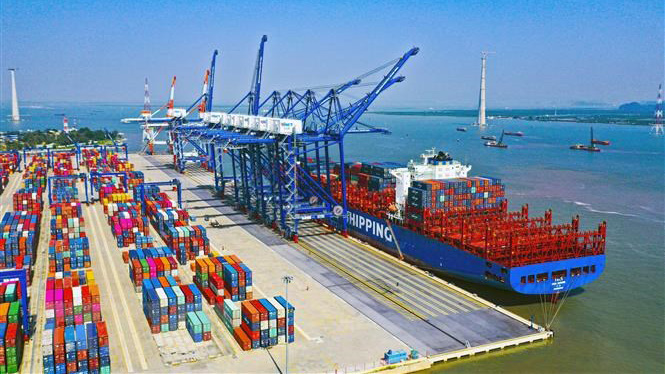HCMC – The Regional Comprehensive Economic Partnership (RCEP) that came into effect on January 1, 2022, will bring about new opportunities for Vietnam to sustain its economic development, as well as important effects in relation to sustainability and institutional support, according to experts from RMIT.
Dr Erhan Atay, RMIT Senior Lecturer of International Business, said along with establishing common standards for trade, rules for the origin of traded items, intellectual property, and e-commerce, RCEP is expected to eliminate trade barriers and tariffs.
As the Covid-19 pandemic brought severe challenges and disruptions to economies, Dr Atay believes “RCEP can provide an important opportunity for members to increase their exports and modernize standards”.
RCEP can also be the source of motivation for local businesses to reach diverse customers across Asia-Pacific by being part of regional e-commerce networks.
“E-commerce and new digital services eliminate borders and offer small players opportunities to access new customers across the globe,” Dr Atay said.
“Vietnamese businesses can utilize the benefits of e-commerce to reach RCEP countries,” he added. “Increased worldwide demand for digital products, telecommunication items, and agriculture may provide opportunities for Vietnamese enterprises to reach all Asian-Pacific customers.”
“RCEP may also help businesses in Vietnam import raw materials and intermediatory or semi-finished inputs for production at a lower price than the pre-RCEP period as most of the imported materials are being used to produce export items,” Dr Atay said.
Challenges for Vietnam businesses to survive harsh competition
Apart from opportunities for Vietnam, the country will also face increased competition as the entry of foreign products into the domestic market will become easier, according to RMIT International Business Associate Lecturer Dr Duy Dinh.
“Additionally, within new-generation Foreign Trade Agreements (FTAs), Vietnam is making commitments to further liberalize the field of trade in services. Therefore, competition pressure will not be limited to the manufacturing sector but also the services sector due to enhanced market access conditions,” Dr Duy said.
As one of the 15 members of RCEP, the trade agreement will allow Vietnam to take advantage of the reduced tariffs and non-tariff barriers, which means the level of protection in the trade of goods has significantly decreased.
Dr Duy added, “Deeper regional integration urges local firms to adapt, innovate, and make use of new market opportunities and potential partnerships with foreign firms. Otherwise, it would be difficult for them to survive the harsh competition.”
Several improvements need to be carried out in Vietnam in the coming years.
RMIT International Business lecturer Dr Santiago Velasquez said Vietnam should focus on higher-value products while maintaining close control of raw materials.
“Vietnam will continue to see opportunities from commodities and primary production industries. However, the most lucrative endeavors will emerge from higher-value manufacturing,” Dr Velasquez explained.
The Vietnamese Government would also need to continue restructuring the economy and focus on institutional reforms. A strengthened banking sector and better business environment would facilitate trade and enable firms to use the opportunities brought about by the FTAs.
Dr Duy said improved information dissemination to firms, especially SMEs, should be the government’s priority.
“Firms need to be well informed of RCEP from a business perspective: new market opportunities, challenges they may face, the support they may expect from the Government, and what they need to do to gain benefits from these FTAs,” he said.









